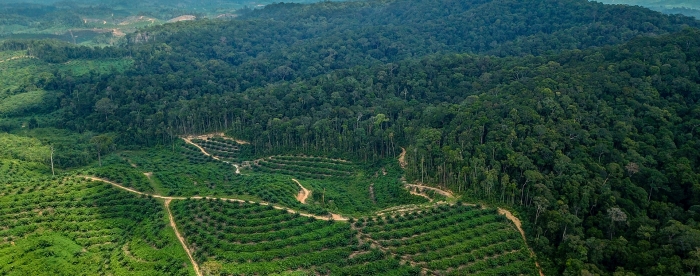News
Our stories ... ...

the Netherlands - 17 August, 2021
Illusions are no good to future generations. After the latest IPCC report we need a government that does more than promise to achieve the Paris goals.
Unique cooperation between tens of thousands of IPPC researchers has led to the unambiguous conclusion that the global changes now unfolding are caused by human activity. We brought the apocalyptic scenes of gigantic forest fires, melting ice caps, failed harvests, water scarcity and calamitous floods down upon ourselves. The coral is dying, the permafrost is disappearing, and animals and plants are dying out en masse.
Former Queen Beatrix of the Netherlands said in her Christmas speech as long ago as 1988 ‘The Earth is dying’. But in the more than thirty years since she spoke those words, we have looked the other way. The constant and almost unstoppable pursuit of short-term profit, with the associated over-exploitation and exhaustion of resources, over-population and especially political short-sightedness have created the quarter-past-twelve world in which we now live. If we go on in the same way, it will cause enormous problems in the near future: more frequent natural disasters, increased flows of (climate) refugees and conflicts about water, food and resources that may erupt into violence. In the words of UN Secretary-General Antonio Guterres, ‘The alarm bells are deafening’. That is certainly true for the two billion poorest people, especially women, who depend directly on the products of a healthy living environment.
Nature is and will always be the basis of our existence. Ignoring that fact is an unforgiveable error. Climate change and the loss of natural and ecological systems are inextricably linked. No natural system can keep track of rapid climate change without suffering severe losses. Thinking that we can solve the climate problem with measures to restrict emissions is an illusion.
Because greenhouse gases remain in the atmosphere for a long time, even if we were to reduce all emissions to zero as of now, global warming would continue, with all its disastrous effects for people and the natural environment. The maximum of a 1.5-degree rise in global temperatures agreed in Paris was outdated within only a few years.
That is why it is crucial to reduce the concentrations of greenhouse gases in the atmosphere. As UN Secretary-General Antonio Guterres has already said, the main priority is to bring the fossil age to an end as soon as possible. But, as the IPCC has said on many occasions, we will also need to remove most of the CO2 already present in the atmosphere. We can only do that by preserving existing ecosystems (forests, wetlands, fens, seagrass fields), the large-scale planting of diverse, indigenous forests and the regeneration of peatlands that all contribute to the vital capture of CO2.
We need to develop a different relationship to the natural world and thereby to the basic conditions for a healthy life. That calls for a policy that combines the preservation of nature, biodiversity and ecosystems, good governance and strategies to strengthen the infrastructure of the planet. If we do that, nature will become our ally and assure us healthy food, sufficient (drinking) water, clean air, lower temperatures and a pleasant living environment. That can lead to sustainable economies and a safe, climate-proof future.
If we continue to destroy nature on a large scale, we will find it blocking our path with irreversible, self-reinforcing pollution of the atmosphere and everything in it. The genie will escape from the bottle in the form of methane explosions caused by melting permafrost, large-scale conflagrations caused by forest fires, rising sea levels, food and water scarcity caused by drought, and widespread extinction of species. And all this will have far-reaching consequences for humankind, as part of the natural ecosystem.
We need to make a fundamental change in our global economic model in which the focus is on volume, cheap production processes and the pursuit of short-term profit. We must move towards a circular economy that uses fewer resources and less energy. That is an urgent global challenge – and especially for the Netherlands, where our policy on climate, energy and the natural environment scores well below average.
Nature policy will have to be, alongside sustainable energy, an ‘independent’ pillar of government policy. The incoming government should allocate a large annual budget to this policy, funded from a substantial percentage of the revenue from the CO2, energy and nitrogen taxes, supplemented by a ‘green tax’ on all chemical pesticides.
But extra money for the natural environment is not enough. We have to tackle not only the effects of worldwide climate and natural degradation, but also the causes. It is short-sighted and cynical to believe that we can do that primarily by concentrating on making money from combating the inevitable negative effects of climate change around the world (adaptation). After all, we’re so good at water management, dykes, agriculture and horticulture, aren’t we?
No, only structural change can help us; the rest is simply shifting the problem from one place to another in a lost race against time. The perverse subsidies for the fossil industry, agriculture and fisheries need to be phased out immediately. The use of biomass and air transport have to be restricted and public transport given a strong boost.
Sustainable energy and a vital natural environment are the keys to recovery. The government needs to take its responsibility now by explaining that we need to change our ways fundamentally and in the short term. The neoliberal era is over. We now need a government that does more than make empty promises about achieving the Paris goals. Because illusions are no good to future generations.
Opinion article as a response to the latest IPCC report written by: Coenraad Krijger, director International Union for the Conservation of Nature, the Netherlands, René Boot, director Tropenbos International, Jane Madgwick, director Wetlands International, Daniëlle Hirsch, director Both ENDS and Wouter Veening, president Institute for Environmental Security.